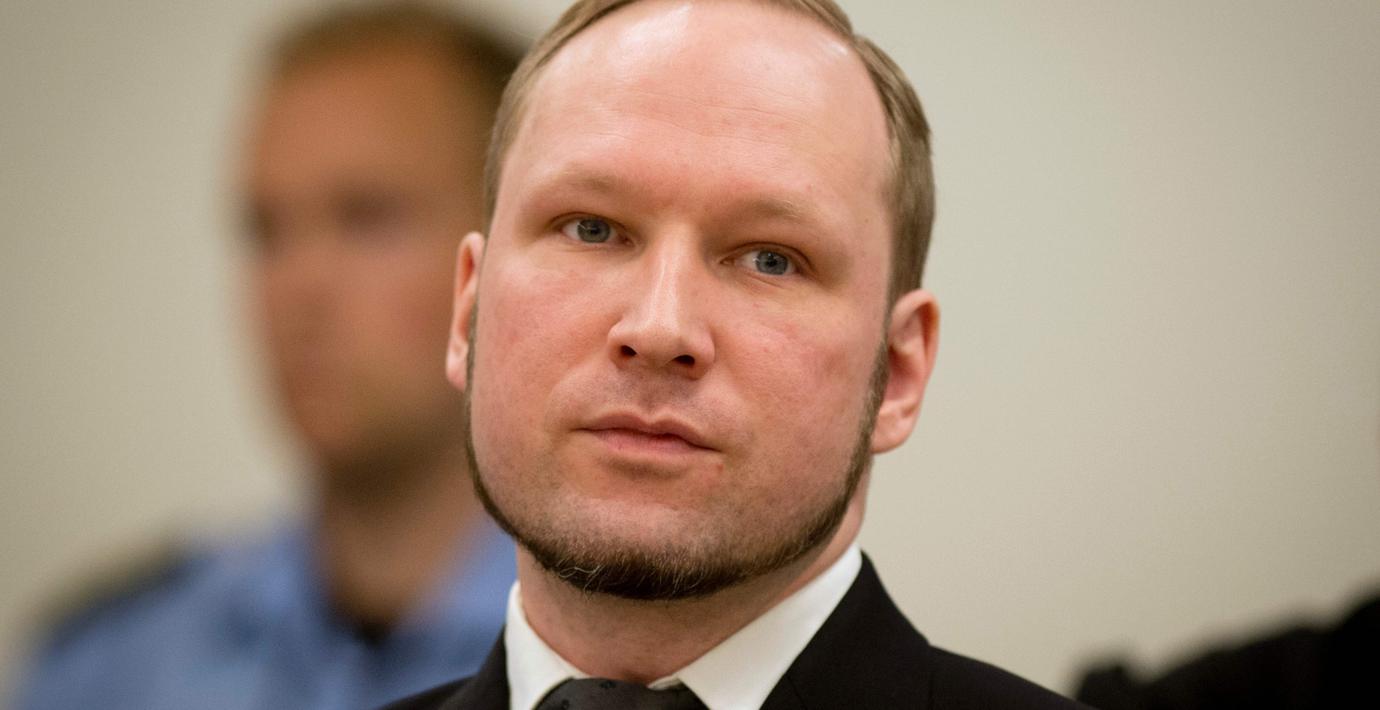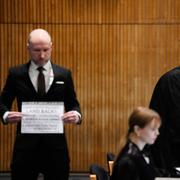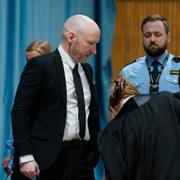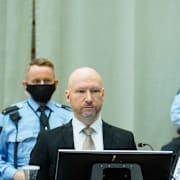
Anders Behring Breivik har bytt namn – till Fjotolf
Den terrordömde massmördaren Anders Behring Breivik har bytt namn till Fjotolf Hansen, rapporterar tidningen Verdens Gang.
Namnbytet är registrerat i folkbokföringen och därmed klart. Varför han inte längre vill bli förknippad med Anders Behring Breivik är oklart.
– Jag kan inte återge våra samtal. Jag konstaterar att han har gjort det, säger hans advokat Øystein Storrvik till VG.
Anders Behring Breivik genomförde terrordåden i Oslo och på Utøya den 22 juli 2011 när 77 människor dödades. Han avtjänar ett 21-årigt fängelsestraff.
bakgrund
Anders Behring Breivik/Fjotolf Hansen
Wikipedia (en)
Fjotolf Hansen, formerly known as Anders Behring Breivik (Norwegian pronunciation: [ˈɑnːəʂ ˈbeːrɪŋ ˈbræiviːk]; born 13 February 1979) is a Norwegian far-right terrorist who committed the 2011 Norway attacks. On 22 July 2011 he killed eight people by detonating a van bomb amid Regjeringskvartalet in Oslo, then shot dead 69 participants of a Workers' Youth League (AUF) summer camp on the island of Utøya. In August 2012 he was convicted of mass murder, causing a fatal explosion, and terrorism.
On the day of the attacks, Breivik electronically distributed a compendium of texts entitled 2083: A European Declaration of Independence, describing his militant ideology. In them, he lays out a worldview encompassing opposition to Islam and blaming feminism for creating a European "cultural suicide". The texts call Islam and Cultural Marxism the enemy and advocate the deportation of all Muslims from Europe based on the model of the Beneš decrees, while also claiming that feminism exists to destroy European culture. Breivik wrote that his main motive for the atrocities was to market his manifesto.
Two teams of court-appointed forensic psychiatrists examined Breivik before his trial. The first report diagnosed Breivik as having paranoid schizophrenia. A second psychiatric evaluation was commissioned following widespread criticism of the first. The second evaluation was published a week before the trial; it concluded that Breivik was not psychotic during the attacks nor during the evaluation. He was instead diagnosed as having narcissistic personality disorder. His trial began on 16 April 2012, with closing arguments made on 22 June 2012. On 24 August 2012, Oslo District Court delivered its verdict, finding Breivik sane and guilty of murdering 77 people. He was sentenced to 21 years in prison, in a form of preventive detention that required a minimum of 10 years incarceration and the possibility of one or more extensions for as long as he is deemed a danger to society. This is the maximum penalty in Norway. Breivik announced that he did not recognize the legitimacy of the court, and therefore did not accept its decision; he claims he "cannot" appeal because this would legitimize the authority of the Oslo District Court.
While imprisoned, Breivik has identified himself as a fascist and a national socialist, saying he previously exploited counterjihadist rhetoric in order to protect ethno-nationalists. In 2015, he said that he has never personally identified as a Christian, and called his religion Odinism. In 2016, in a four-day civil trial Breivik sued Norwegian Correctional Service, over his solitary confinement and the general conditions of imprisonment. Breivik claimed that his solitary confinement violated his human rights and asserted that he had been subjected to degrading treatment. The verdict, in which the government was found to have breached Article 3 of the Human Rights Convention, was appealed; a trial in Court of Appeal is scheduled to start on 10 January 2017. On 1 March 2017, the Court of Appeals ruled that solitary confinement did not violate Breivik's rights.
Omni är politiskt obundna och oberoende. Vi strävar efter att ge fler perspektiv på nyheterna. Har du frågor eller synpunkter kring vår rapportering? Kontakta redaktionen



